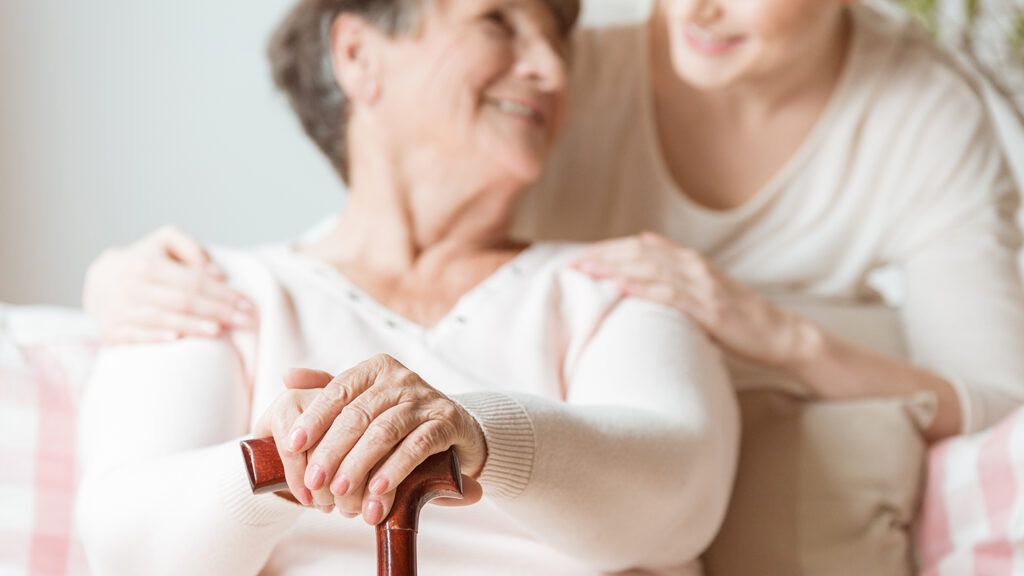No one usually selects “caregiving” as a major in college or pursues that track with the same intention as other careers, and yet according to a 2015 survey conducted by The National Alliance for Caregiving (NAC) and the AARP Public Policy Institute, an estimated 43.5 million adults in the United States provide unpaid care to an adult or child. About 20% of the respondents surveyed said they qualify as caregivers.
Some caregivers are naturals. They seem to be born with extra quantities of patience. However, for most of the population, it is one of the hardest jobs we will ever have; one that is certainly not well-compensated or even taken seriously in some corners of the world. But the hard-earned lessons of caregiving—the tasks that make caring for someone you love worthwhile—are transferable to every relationship and situation. Here are six.
- Self-care first.
All veteran caregivers would agree this is the most important lesson of caregiving: self-care first. Self-care is unique to each person, but there are common denominators, such as consistent sleep, adequate exercise, recreation, good nutrition, stress-reduction techniques and a dose of humor.
In her book, The Conscious Caregiver, Linda Abbit writes, “Taking care of your physical health is an important part of self-care and increased longevity, and it’s an area that many people overlook. You need to try your best to stay in top shape physically so you’re not distracted by nagging symptoms of ailments and can maintain the physical strength and stamina needed to care for your loved one.”
- Mistakes are fixable.
Norma Myers and her husband Carlan spend much of their time supporting their son, Steven, as he continues on his road to recovery after sustaining a traumatic brain injury in 2012. Among the caregiving lessons noted in her Brainline.org blog, is this: mistakes are fixable.
Perfectionism can handicap the efforts of caregivers, making every task a drudgery. Instead of focusing on the tremendous commitment and dedication you are showing your loved one, you’re focused on the less-than-perfect meal you cooked or your brief outburst over the TV. Time to swap the perfectionism for self-compassion, because according to psychotherapist and author Anne Wilson Schaef, Ph.D., “Perfectionism is self-abuse of the highest order.”
- It’s okay not be okay.
Another key lesson Norma writes about on her blog is that “It’s okay not be okay.” She talks about wearing the “I’m fine” mask for too many years, misleading family and friends to think she is the same person as before her son’s accident. She was so afraid of letting people down that she didn’t let them in. She avoided friends and relatives, because that was less painful than talking about the truth of her reality. She writes, “It’s imperative to let go of unrealistic, self-inflicted expectations, and it is okay not to be okay. It’s not a sign of weakness to admit this, in all actuality, I realize it’s a sign of bravery to say, ‘Please be patient with me. I need you. I can’t do this alone.’”
- Compassion helps
Compassion is the mother of all virtues and tends to soften even the hardest blow. When most things are going wrong, by addressing the situation with compassion, you remedy much of the mess. Caregiving teaches and nurtures compassion. It is a learning space that teaches us a sort of kindness that makes all of our relationships and circumstances better.
In their book, AARP Medications for Caregivers, Barry J. Jacobs PsyD and Julia L. Mayer, PsyD write, “We’ve learned that compassion helps. When we are most frustrated, we put ourselves in Jean’s position and try to imagine what we would feel like if we were her. We slow down, speak respectfully, and always try to explain what we want, what we are doing, what we are hoping for, so that she can join with us in common effort to help her live as well as possible.”
- Practice mindful communication
Prior family dynamics tend to resurface when caregiving. A sibling rivalry from your childhood can suddenly sabotage your efforts to keep peace or take over your emotions. You might find yourself in past roles, acting and speaking in ways that resemble your younger, insecure self. That’s why effective communication is so essential; a skill that translates to every relationship.
According to Abbit, clear and open communication is made up of three parts: listening, speaking, and nonverbal communication. “It’s important to practice these skills to the best of your ability while you’re a family caregiver,” writes Abbit. “And they need to be done thoughtfully with mindfulness at the core of the exchange. Remember to pause, observe, reflect [and] then speak.”
- Make room for hope
As a caregiver, you may prepare a lot of meals, make your loved one comfortable, give him or her the gift of your time. But your number one responsibility—a lesson that permeates into everything you do—is to provide hope. When immersed in a medical treatment plan, or overwhelmed by symptoms and maladies, your job is to remind your loved one and yourself that there is still plenty of hope.
Caregiving teaches us patience and kindness. It forces us to live in the moment and be more forgiving of ourselves. It motivates clear, consistent communication. It reminds us of hope. Caregiving leaves us with lessons that make us better human beings.





